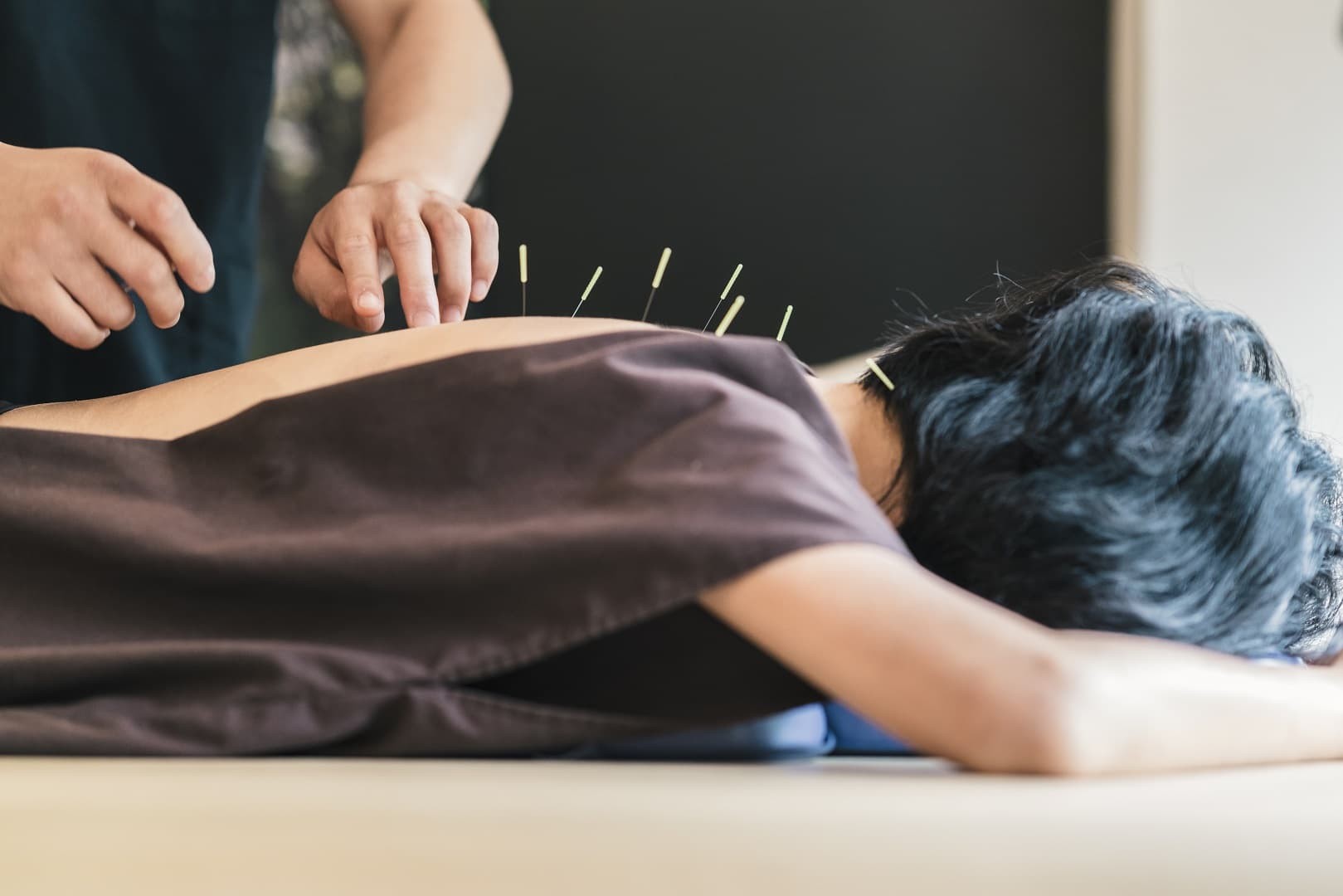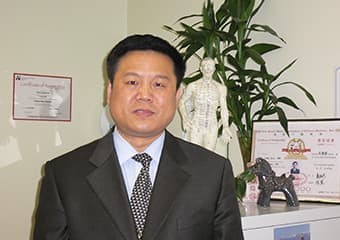
Acupuncture is one of the branches of Traditional Chinese Medicine (TCM) that involves the insertion of fine and disposable needles into the specific skin points called acupoints, which are linked to the meridians and connected to organs. Acupuncture can help unblock and enhance the Qi energy flow, balance the Yin and Yang, improve blood circulation, relax muscles, reduce stress and pain.
Results from a systematic review of the efficacy of acupuncture revealed that it may be beneficial for a range of illnesses, especially for mental disorders and pains. In previous studies, patients with symptoms of depression using acupuncture alongside conventional medical treatments reported better quality of life after three months of treatment.
The safety of acupuncture treatment in pregnant women is also well documented. Based on a statistical analysis, more and more pregnant women are turning to acupuncture, considering it to be an effective treatment for headaches, nausea, vomiting, hot flashes and other pregnancy-related complaints.
Acupuncture originated in China over 3,000 years ago and has become increasingly popular in recent decades worldwide, with Western medicine embracing it as a safe, effective, quick and drug-free management tool for pain and the adverse reactions of conventional treatments.
In 2002, Australian Victoria government registered Chinese medicine practitioners, acupuncturists and Chinese herbalists as health professionals similar to doctors, nurses and physiotherapists, and in 2012 the Australian federal government did the same thing across the country. Majority of health funds and workers offer rebates, covering the cost of acupuncture.
Effectiveness of Acupuncture for Stress, Chronic Insomnia & Anxiety Symptoms
Stress, depression, anxiety and insomnia are significant causes of morbidity. People are deeply affected by the COVID 19 pandemic, physically and mentally. They are suffering from stress, sadness, anxiety, muscle tension, headache, neck and shoulder pains, lower back pain, fatigue and low energy, poor quality of sleep, sense of unwellness, etc. Many people are interested in drug-free therapy because they are worried about the possible adverse effects of drugs, and many people already are on antidepressant drugs but are not happy with the results.
Western scientists don't know exactly how acupuncture needles alleviate the symptoms of anxiety, poor sleep quality and muscle pains, as well as improving one's daily life by reducing their stress levels. However, several peer-reviewed studies have revealed that stimulating the acupoints causes multiple biological responses to prompt a cascade of chemicals in the muscles, spinal cord and brain that releases the body's natural pain-killing endorphins to affect circulation and other bodily systems.
Many clinical trials have shown the significant benefits of acupuncture in the treatment of anxiety disorders, stress, postoperative pain, chronic pain and sleep disturbances caused by insomnia, obstructive sleep apnea, restless legs syndrome or other sleep disorders. It improved the daytime functioning of people who previously suffered from poor sleep quality and contributed to a better sleep hygiene.
Moreover, a team of academic researchers in the UK who conducted a randomized trial for the clinical application of acupuncture on a depressive disorder found the positive effects of acupuncture extremely significant. Not only did the modality have little to none of the common side effects present in Western medicine, but it also produced positive results fast.
It is reported that the American Army employed acupuncturists to treat stressed and anxious solders, and they saw good results. Generalised anxiety disorder is prevalent among adults, especially those who have experienced a traumatic event such as war, abuse, life-threatening illness, or a natural disaster.
Most recent studies in China showed that using acupuncture for insomnia, stress and anxiety may produce positive effects within 60 minutes and last for 1 to 2 weeks. I totally agree with the results of research because I have been practicing acupuncture over 40 years and many of my clients told me they are feeling much calm and relaxed before they leave my clinic following an acupuncture treatment for anxiety, stress or insomnia.
What Happens in an Acupuncture Treatment?
If you're looking to get an acupuncture treatment for insomnia, stress, anxiety, or to deal with symptoms of depression, here's what you can expect as soon as you step into an acupuncture clinic.
The Chinese medicine doctor or acupuncturist will first take your detailed health history, including what medications you are on, examine your tongue and take your pulses in several different places then make a diagnosis in Chinese medicine and possibly in modern medicine too.
An acupuncture session typically lasts about 25 to 45 minutes. You are asked to lie or sit on a padded table, and to remove or loosen just enough clothing to expose the areas to be treated. It will involve a few hair-thin sterile disposable needles inserted into the skin's acupoints. The acupuncturist may manipulate the needles or stimulate the needles with a battery currency stimulator. The pain is usually minimal like a mosquito bite. After removing the needles, bleeding is usually trivial or nonexistent. The Chinese medicine doctor might do some remedial massage and recommend you to have some herbal medicine to get better and long-term benefits.
People have widely different responses to acupuncture – even people with the same disease or symptoms. Some feel an immediate and strong effect. It may take several sessions or more sessions to get optimal results.
In conclusion, acupuncture is safe, effective and drug free alternative management for stress, anxiety, depression, insomnia, etc.










